Assholes: A Theory
John Walker
2019
| 81 min
Selections and Awards
Official SelectionHot Docs, Toronto, Canada (2019)
Official SelectionCPH:DOX, Copenhagen, Denmark (2019)
Official SelectionFIN Atlantic International Film Festival, Halifax, Nova Scotia (2019)
Official SelectionCalgary International Film Festival, Calgary, Alberta (2019)
Official SelectionVancouver International Film Festival, Vancouver, Canada (2019)
Nominee - Donald Brittain Award for Best Social/Political Documentary ProgramCanadian Screen Awards (2021)
Nominee - Best Writing, DocumentaryCanadian Screen Awards (2021)
Nominee - Best Picture Editing, DocumentaryCanadian Screen Awards (2021)
With venomous social media, resurgent authoritarianism and rampant narcissism threatening to trash civilization as we know it, the time has come for Assholes: A Theory—an entertaining and oh-so-timely feature doc from acclaimed director John Walker.
Inspired by Aaron James’ New York Times bestseller of the same name, Assholes investigates the breeding grounds of contemporary “asshole culture” and locates signs of civility in an otherwise rude-’n-nasty universe.
Venturing into predominantly male domain, Walker moves from Ivy League frat clubs to the bratty princedoms of Silicon Valley and bear pits of international finance. Why do assholes thrive in certain environments? What explains their perverse appeal? And how do they keep getting elected!
Lively commentary is provided by the likes of actor John Cleese, former Canadian police officer Sherry Lee Benson-Podolchuk, and Italian LGBTQ activist Vladimir Luxuria, who famously locked horns with Silvio Berlusconi, the p***y-grabbing prototype of the 21st-century demagogue.
Synopsis
Ever get the impression that assholes are taking over? Assholes: A Theory, a timely new doc from John Walker, investigates the breeding grounds of contemporary asshole culture and searches for signs of civility in a rude-’n-nasty universe.
Oneliner
With philistine politics and toxic tweets trashing civilization as we know it, the time has come for Assholes: A Theory — a tonic-n-timely new doc from acclaimed director John Walker.
About the film
Ever get the feeling that assholes are taking over the world?
Bad behaviour is as old as human history, something we all encounter at some point—whether on the playground, in the workplace or in public life. But the phenomenon seems to be amplified in an age of venomous social media and resurgent authoritarian politics.
With rampant narcissism threatening to trash civilization as we know it, the time has come for Assholes: A Theory, an entertaining and oh-so-timely new doc from acclaimed director John Walker.
Built around a lively conversation with philosopher Aaron James, author of the New York Times bestseller of the same name, Assholes: A Theory investigates the breeding grounds of contemporary “asshole culture”—and locates a few hopeful signs of civility in an otherwise rude-’n-nasty universe.
Venturing into a predominantly male domain, Walker moves from the frat clubs of elite colleges to the bratty princedoms of Silicon Valley and bear pits of international finance. Why do entitled assholes thrive in certain environments? What explains their perverse appeal and success? And how do they keep getting elected!
Weighing in with pungent commentary are observers like actor John Cleese, referring sweetly to the hedge-fund trade as an “arsehole factory”—echoing law professor Saule Omarova’s tart appraisal of financial services as “a quintessential asshole industry.” While Leslie Miley, one of the few African-Americans to rise through Silicon Valley’s ranks, assesses the damage done by the move-fast-and-break-things mantra, and former police officer Sherry Lee Benson-Podolchuk shatters the clichéd image of the courteous Mountie with Women Not Wanted, her exposé of misogynistic assholery within the Royal Canadian Mounted Police.
Other featured interviews include policy consultant Robert Hockett, who worked for both Occupy Wall Street and the US Federal Reserve in the wake of the 2008 crash; banker Paul Purcell, who has pioneered a novel “no asshole rule” at his company; and Italian LGBTQ activist Vladimir Luxuria, a former parliamentarian who famously locked horns with Silvio Berlusconi, the p***y-grabbing prototype of the 21st-century demagogue.
Assholes: A Theory is a co-production between John Walker Productions Ltd. (Ann Bernier, John Walker, producers) and the National Film Board of Canada (Annette Clarke, producer).
A Conversation with John Walker
Assholes have been around forever. Why this film? Why now?
There’s a real sense that assholery is on the rise. That’s something that Aaron James addresses head-on in the book that inspired this project. He’s a moral philosopher, issuing a warning that this kind of bad behaviour is getting out of hand. When assholes start controlling institutions, he says—when they start disrupting workplaces and entire political systems—then we have a serious problem.
When I finished his book, I had two immediate reactions. One was to go out and buy a copy for my 23-year-old daughter. She loved it. And the second was, “I want to make a film about this.”
We’re never going to rid the world completely of assholes, it would be naïve to think we could, but we need to strengthen the checks and balances against this kind of behaviour. We need to take a stand.
What were the challenges of adapting a book of moral philosophy to the screen?
There’s always the question of authorship. My films are personal, and with this project I was working with another author’s concept—one rooted in philosophy, with abstract ideas and concepts. I needed to bring it into a more popular realm, and Aaron was on board with that goal.
We had already started production when Trump got elected. The day after the election I called Aaron to console him. “How will you address this in the film?” he asked me. I had already decided that I would ignore Trump, but his rise to power has certainly changed the tone of the film. It’s a darker, more complicated film than the one I first envisioned.
Assholes come in many forms—they can be funny, or entertaining, and they are often very successful in their chosen field. While my original concept was not comedy exactly, it was certainly not tragedy either. The final film is more complex, but also more interesting, than what I had originally envisioned.
Did the #MeToo movement alter your approach to the subject?
#MeToo emerged after we’d begun, but there was already a focus on the gender aspect. Aaron defines assholery as predominantly male behaviour, and I myself have witnessed plenty of instances where male assholes target women with their bad behaviour, so that was something I wanted to address.
But I don’t think it’s enough to express moral outrage at the assholery of Weinstein and other public figures. We need to look at ingrained male culture and behaviour. I’m hoping the film will resonate with young people like my daughter. I’d like to think it could serve as a guide to identifying and avoiding assholes. I’m also hoping it will reach those young people—some are featured in the film—who see asshole behaviour as “cool”, as a way to succeed in life.
You single out specific sectors as particularly prone to asshole behaviour. Let’s start with the financial sector.
It’s kind of a cliché that Wall Street is a hotbed of assholery: Scorsese does a great job of exposing that in The Wolf of Wall Street. Aaron has written extensively about the lack of fairness in the global economy, and early on he introduced me to Robert Hockett and Saule Omarova, law professors at Cornell University who’ve been studying asshole behaviour in the financial sector.
Robert and Saule point to the 2008 crisis as an example of “asshole capitalism,” arguing that the deregulation that happened under Clinton derailed the entire financial system, knocking it off balance. With fewer checks on their behaviour, assholes were able to take control. They started rewarding their own asshole behaviour. CEOs who should have been thrown into jail were giving themselves bonuses. We have a great interview with John Cleese where he refers to pre-crash hedge-fund industry as an “arsehole factory.”
Silicon Valley is another sector you touch upon…
Silicon Valley is an interesting case. At its inception it had a liberal culture, with this sense that they were creating a better world. But as they gained massive power and wealth, they became imperialists, for lack of a better term. Aaron talks about this growing sense of entitlement, where the bottom line was to make as much money as possible regardless of the social implications. “To move fast and break things,” as the motto goes.
At the same time social media, a creation of Silicon Valley, has given birth to a new variety of asshole. We now have the phenomenon of Internet trolls, or haters, as Italians call them. Social media extends the reach of asshole behaviour into a whole new realm. Assholery and hate speech have been hugely amplified.
Leslie Miley, who used to be an engineering executive at Twitter, talks about this in the film. He’s one of the few African-Americans to rise to the top in the sector, and he’s witnessed how social media can encourage hateful and extreme views—and how CEOs have reneged on their moral responsibility to do something about it.
Sherry Benson-Podolchuk talks about “group think” inside the Royal Canadian Mounted Police. What does she mean by that?
Sherry has personal and institutional experience of assholery. As an RCMP officer, she had to deal daily with asshole bosses—as well as an entire institution that condoned and supported their behaviour. She was a single mom in a small town. She couldn’t simply walk away from the situation, and assholes drove her to the point of contemplating suicide. So when she talks about “group think,” she’s referring to all the institutional pressures that prevented her colleagues, many of them decent people, from speaking out.
She’s an extraordinary individual and brings a lot to the film. She was the first woman to speak out publicly against asshole behaviour in the RCMP, an important Canadian institution. It would take 20 years of pushing back, but finally real change is taking place. The government recently appointed the first female head of the RCMP and began dealing with harassment and misogyny inside the force. So she’s a superhero in my book.
What happens when asshole behaviour infects the political realm?
I was lucky to interview Bill Emmott, who was editor-in-chief at The Economist for over 10 years. He has analyzed how asshole behaviour in the political class filters down through society and becomes an accepted norm. Early in Silvio Berlusconi’s rise to power, Emmott ran a cover story with the headline “Why Berlusconi Is Unfit to Lead Italy.” He was raising the alarm about a particular type of populist asshole, warning that this kind of governance could spread to other countries. As indeed it has.
The author and women’s rights activist Lorella Zanardo has interesting things to say about Berlusconi’s media empire, how he used media to undermine public broadcasting and make assholery acceptable in the broader culture. During the 1980s he secured a near monopoly of commercial TV in Italy, broadcasting a constant stream of sexist programming, featuring semi-naked young women catering to older men. The message was clear: it pays to be an asshole. Lots of Italians bought that message.
What choices did you make in terms of the film’s style and tone?
The original concept was much more comic. As John Cleese says, assholes can be funny. But with the election of Trump and the emergence of the #MeToo movement, the tone shifted. The film got more serious, with a more specific focus on male behaviour.
I didn’t want to simply point fingers. I’m interested in looking at assholery as a human characteristic, in exploring its roots and its causes. Vladimir Luxuria, a LGBTQ activist and a former member of the Italian parliament, tells this great anecdote in the film. She’d been the target of all these vicious attacks on social media; messages urging her to kill herself, telling her she was worthless. At a certain point she met one of her “haters” on the Italian TV show Le Iene. He turned out to be a pathetic kid, a troubled young guy with no job, no girlfriend, no real prospects in life—and she found herself feeling genuine empathy for him. I was moved by her reaction, her generosity of spirit. Yes, we absolutely need to resist assholery, but in order to do that successfully we need to identify its sources. In that sense, this is an activist film.
Talk about some of those signs of hope.
Robert Sutton, a professor of management sciences at Stanford, introduced us to an interesting company called Baird, a financial institution where the CEO, Paul Purcell, established the “no asshole rule.” Purcell tells potential employees that asshole behaviour is simply not tolerated within the company. If you’re an asshole, you’ll be found out. What’s interesting is that Baird managed to steer clear of the 2008 crisis, handling billions of dollars of their clients’ money without firing anybody. They survived the crash by taking the moral high ground. And as Robert Hockett points out, the law also has a role to play in curbing asshole behaviour in banking and finance.
And we found lots of smaller instances of successful pushback. Sherry Colb, another Cornell law professor, tells a fascinating story of dealing with a young asshole in one of her classes. At a certain point, disgusted with his behaviour, she stopped interacting with him, stopped asking for his comments. And when he came to her office to ask why, she simply named his behaviour. And it was as if nobody had ever told him. He was an entitled young man, well on his way to being a fully-fledged asshole, but he turned out to be a model student. He just needed to be told.
So resistance can take modest forms. Sometimes a small gesture can make a big difference. I think Vladimir Luxuria really nails it. Whenever we witness asshole behaviour, she says, whether it’s towards an individual or group, we should never forget that we can speak out. If the film has a message, that would be it. There will always be assholes out there—but if we don’t mount a resistance, then we’re in trouble.
Trailer (2 minutes)
Images
Loading...
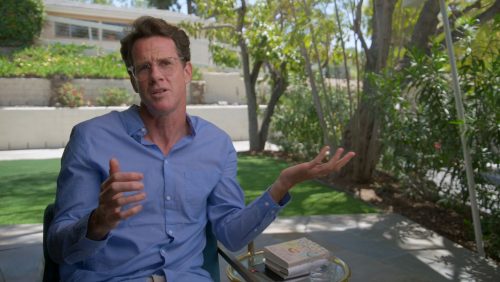
Download
Loading...
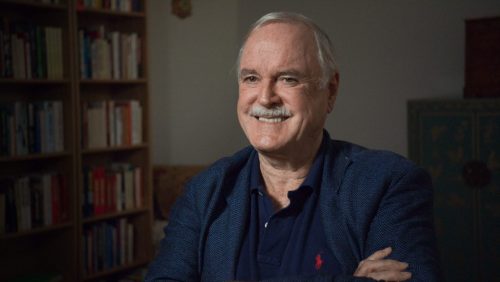
Download
Loading...
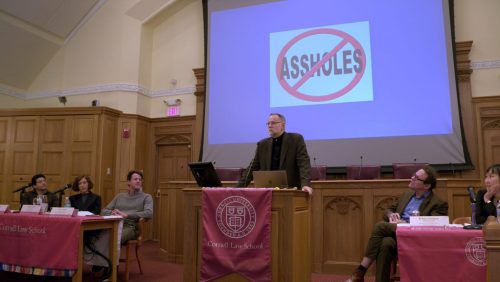
Download
Loading...
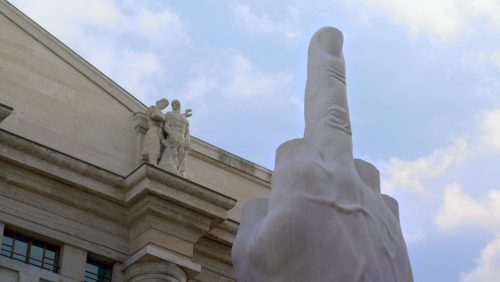
Download
Promotional Materials
Team
John Walker
Filmmaker, Narrator, Producer (John Walker Productions Ltd.)
Photo
Photo : Stephan Ballard
Ann Bernier
Producer (John Walker Productions Ltd.)
Photo
Annette Clarke
Producer (NFB)
Photo
Photo : NFB
Credits
Inspired by Assholes: A Theory
by
AARON JAMES
Directed & Narrated by
JOHN WALKER
Written by
JOHN WALKER
ROBERT SANDLER
Producers
ANN BERNIER
ANNETTE CLARKE
JOHN WALKER
Cinematographer
PAUL MCCURDY
Editor
JEFF WARREN
Composer
SANDY MOORE
Animation
RON MCDOUGALL
Location Sound
JIM RILLIE
Sound Design
ALEX SALTER
Special Thanks
in order of appearance
AARON JAMES
AIME E MORRISON
ROBERT HOCKETT
PAUL PURCELL
SHERRY LEE BENSON-PODOLCHUK
JOHN CLEESE
SUJI GELERMAN
ROBERT I. SUTTON
GEOFFREY NUNBERG
JOHNATHAN GILMORE
SHERRY F. COLB
SAULE OMAROVA
BILL EMMOTT
EDOARDO ALBINATI
LORELLA ZANARDO
TIM PARKS
PIERCAMILLO DAVIGO
VLADIMIR LUXURIA
LESLIE MILEY
BETHANYE MCKINNEY BLOUNT
MARY SARNATARO
LESLIE DIXON
Interviews with
GIUSEPPE FALSONE
RUSS LARAWAY
GAD LERNER
PAUL RUSSELL
KIM SCOTT
BEATRICE MARIA ‘BEBE’ VIO
LUIGI ZOJA
Researchers
VALERIE MANSOUR
ELENA DAL PRA
OLIVER NEIDHART
Visual Researcher
ELSPETH DOMVILLE
Story Consultant
MERRILY WEISBORD
Development Consultant
LOUISE ROSEN
Studio Interviews & Streeters
CALEB CECHOTA
JULIENNE CORDY
ROB DELANO
KEVIN MICHAEL DUNFORD
DAKOTA GAMBLE
ALEJANDRO CHUPINA
AUSTIN HARE
REBECCA JOHNSON
DAVID LEWIS
MARTIN MORROW
PEGGY RICHARDSON
CHRISTIAN RIVERA
ENZE YANG
VONCILE BROWN-MILLER
ROXXY DOWELL
QUINNESH DOWLING
BEA FIELDS
FABIAN HODRICK
JOHN LOPEZ
CYNTHIA MASETTO
DOUGLAS PRIDEAUX
AMMONS E. SMITH
SHANE K. SMITH
RYAN TAGLIANETTI
Additional Photography
IDAN MENIN
BECKY PARSONS
WILL PUGH
Drone Operator
MATT LAVIN
Camera Assistant
SOPHIE LEMOINE
MELISSE SPORN
Additional Sound Recording
STEPHEN HOPKINS
MAX HIRTENSTEIN, CSF
JUAN NUNEZ
Location Production Assistants
AMANDA BERNHARDT
KRISTEN DEGIROLAMO
KANISHKA GULATI
BJORN JAKOBSON
DAVID LA HAYE
MARINA CUNHA MARTINS
CHRISTOPHER MORGAN
PATRICK DAVID ORR
LĺVIA SÁ
STEFANO SANTAMATO
Halifax Casting Agency
ERIN HENNESSEY
NYC Casting Agency
KEN LAZER
Trailer Editor
CHRIS TURNER
Production Manager
ANN BERNIER
Production Coordinators
KELSEY POWER
AMY TREFRY
DANIELLE NOBLE
Intern
BRONWEN MCKIE
Italy Coordinator
FRANCESCO LONARDI
Production Accountant
ANGIE KOKIĆ
English Transcription
MICHELLE MCSTAY
ANDREW BATEMAN
Italian Transcription/Translation
TIDAL TRANSCREATIVE
NFB Quebec / Atlantic Studio
Production Supervisor
ROZ POWER
Technical Coordinators
DANIEL LORD
CHRISTOPHER MACINTOSH
Marketing Manager
JOHANNA LESSARD
Publicist
PATRICIA DILLON-MOORE
Production Coordinator
CHERYL MURGATROYD
Studio Administrator
LESLIE ANN POYNTZ
Chamber Ensemble
Violas
SUSAN SAYLE
ÉTIENNE CHÉNARD
Cello
NORMAN ADAMS
Clarinet
EILEEN WALSH
Baritone
MICHAEL DONOVAN
Piano
SANDY MOORE
Jazz Ensemble
Piano
SILVIO PUPO MONTERO
Drum Kit
DAMIEN MOYNIHAN
Bass
LUKAS PEARSE
Clarinet, Saxophone
KEN MACKAY
Music Score recorded and mixed at
THE SONIC TEMPLE
Audio Engineer
DARREN VAN NIEKERK
Recordings assisted by
SCOTT MACKEY
TAKODA SULLIVAN
CONNOR MACLEOD
Film mixed at
THE NATIONAL FILM BOARD OF CANADA
Re-recording
SHELLEY CRAIG
Assistants to the Composer
MIDI, Sound Design, technician
DONALD WALLS
Scoring
ALEX ARNOLD
Technical
JUSTIN GAUDREAULT
Dialogue Editor
BOB MELANSON
Narration Recording
MATT DAWSON
THE HIDEOUT STUDIOS
Graphic & Website design
RON MCDOUGALL
Assistant Editor
DAVID MULLINS
Post-Production Coordinator
KELSEY POWER
Visual Post-Production Facilities
902 POST INC
Colourist/Online Editor
DOUG WOODS
Assistant Online Editor
CARTER THURBER
Dailies
ROBERT CARRIGAN
Archival Footage Courtesy of
AFP/ GETTY IMAGES
ASSOCIATED PRESS ARCHIVE
BUDGET FILMS
CBC ARCHIVE SALES / ARCHIVES RADIO-CANADA
ROLAND DIAZ / GETTY IMAGES
Photographs Courtesy of
ADAM SCOTTI
ALAMY STOCK PHOTO:
AGENZIA SINTESI, ANDIA, ANDREA SPINELLI, CROWDSPARK,
ERIK PENDZICH, INDEPENDENT PHOTO AGENCY SRL
INSIDEFOTO SRL, KREMLIN POOL, ZUMA PRESS, INC.
ASSOCIATED PRESS PHOTO/ CARLO VITELLO
BOB THOMAS SPORTS PHOTOGRAPHY/ GETTY IMAGES
HOLLY BOCHURKA
JOHNATHAN GILMORE
SHERRY LEE BENSON-PODOLCHUK
Assholes: A Theory Book Graphics Courtesy of
DOUBLEDAY – EMILY MAHON
Legal Counsel
ROBERT ASKE
STEWART MCKELVEY
Accounting Services
PATRICIA DYSON
COLLINS BARROW
Insurance
PAUL LIPKUS
PRIME ENTERTAINMENT
FRONT ROW INSURANCE BROKERS INC.
Developed with the assistance of
SUPER CHANNEL Entertainment Network
Produced in association with
documentary channel
SANDRA KLEINFELD
Senior Director, documentary Channel
JORDANA ROSS
Production Executive, documentary Channel
(c) 2019 -A Rude Film Inc & The National Film Board of Canada co-production

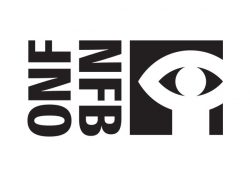
Produced with the participation of
Canada Media Fund
with the assistance of
the Government of Nova Scotia,
Nova Scotia Film and Television Production Incentive Fund
and
Canadian Film or Video Production Tax Credit
Rogers Telefund
and the participation of
Telefilm Canada
Rogers Group of Funds
Through the Theatrical Documentary Program
www.assholesatheory.com
-
About the NFB
Founded in 1939, the National Film Board of Canada (NFB) is a one-of-a-kind producer, co-producer and distributor of engaging, relevant and innovative documentary and animated films. As a talent incubator, it is one of the world’s leading creative centres. The NFB has enabled Canadians to tell and hear each other’s stories for over eight decades, and its films are a reliable and accessible educational resource. The NFB is also recognized around the world for its expertise in preservation and conservation, and for its rich and vibrant collection of works, which form a pillar of Canada’s cultural heritage. To date, the NFB has produced more than 14,000 works, 7,000 of which can be streamed free of charge at nfb.ca. The NFB and its productions and co-productions have earned over 7,000 awards, including 11 Oscars and an Honorary Academy Award for overall excellence in cinema.
Media Relations